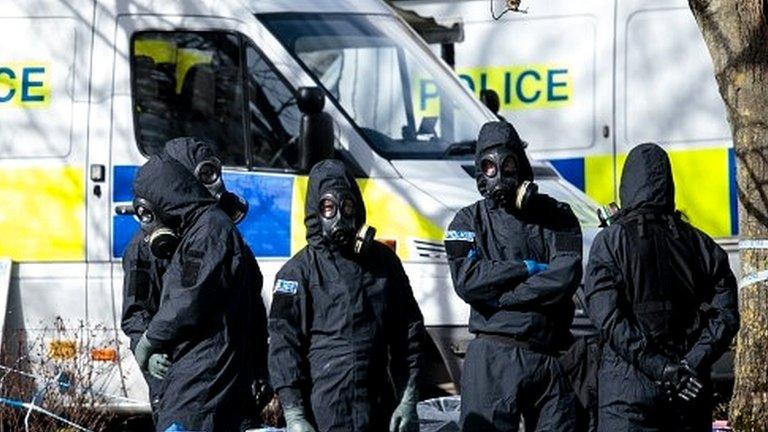Ireland 'could expel Russian officials' after UK attack
- Published
Ireland 'could expel Russian officials'
Ireland could expel Russian officials if they are shown to be acting as intelligence agents, Taoiseach (Irish Prime Minister) Leo Varadkar has said.
He was speaking after the European leaders agreed it was "highly likely" that Russia was responsible for a nerve agent attack in the UK.
Mr Varadkar said there would be a security assessment in the coming days, with a decision as early as next week.
Moscow denies responsibility for the attack on an ex-spy and his daughter.
Sergei Skripal and his daughter Yulia remain in a critical but stable condition after the attack in Salisbury on 4 March.
Mr Varadkar said Ireland would not "randomly expel people who are genuine diplomats".
He pointed out that the UK had expelled 23 people who it believed were using diplomatic cover.
Theresa May said, after talks, that it was "right that we stand together"
British Prime Minister Theresa May briefed her EU counterparts on Thursday on the poisoning of the Skripals, who were found unconscious on a bench.
The prime minister set out the evidence the UK has against Russia - including the positive identification of the chemical used as a type of Novichok nerve agent and the knowledge that Russia has produced this agent within the last 10 years.

Why does the EU have ambassadors?
The European Union has a network of 140 delegations around the world which represent the EU abroad.
The EU nominates ambassadors to those embassies. They play a key role in presenting, explaining and implementing the EU's foreign policies to their host country.
The current EU ambassador to Russia is German diplomat Markus Ederer, who has previously been responsible for China and Mongolia.

- Published23 March 2018
